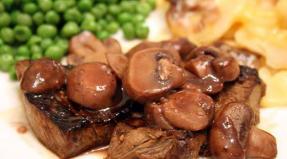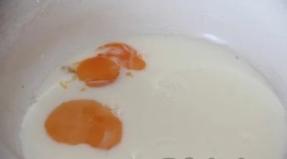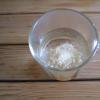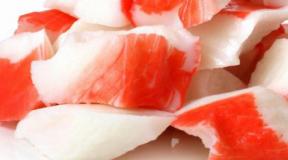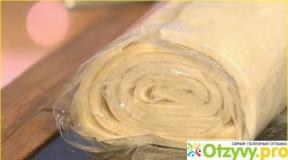How to make grape vinegar? Grape vinegar, benefits and harms, how to take.
Grape vinegar has a long history of use in various fields of human activity. Recently, interest in this product has increased significantly, and more and more of its brands can be found on store shelves. Before purchasing an unusual product, a potential buyer will naturally ask questions: what are the benefits and harms of grape vinegar for the body and where it can be used.
What is grape vinegar
Grape vinegar, also sometimes called wine vinegar, is a reaction product of fermented grape wine. It involves special bacteria that oxidize the ethanol contained in the alcoholic beverage and convert it into acetic acid. This reaction occurs naturally without the addition of any synthetic compounds, so wine vinegar can literally be called a 100% organic product.
Since antiquity, grape vinegar has been used in many areas of human activity. Since it is made from raw fruit, it has many beneficial properties. So, grape vinegar was used for the manufacture of cosmetics in Ancient Greece and Egypt, it was used for the prevention and treatment of various ailments.
Currently, this product continues to be used in cosmetology, and is also a fairly popular folk remedy for many diseases. However, traditionally it is preferred by culinary specialists.
Types of grape vinegar
Depending on the raw materials used to prepare grape vinegar and the method of production, there are several varieties of it:
- Red . As the name suggests, this vinegar is made from red wine. It has a pleasant taste and bright aroma, which will help to diversify even the usual dishes. It makes excellent dressings for salads, sauces for vegetables and meat, marinades.
- White wine vinegar, respectively, made from white wine. It tastes a little sweeter, but in general, the difference between the red and white varieties is not very noticeable, especially in the composition of the dishes.
- Balsamic is a special type of grape vinegar. It is the most expensive of all, since the technology for its preparation is very laborious and time-consuming. Natural balsamic is considered a very sophisticated product and has a strong fruity aroma. It is thicker in consistency than other types of vinegar, but its benefits are no less. It is used not only in the preparation of salads and sauces, but also added to soups and even desserts.
- Sherry vinegar is made on the basis of Spanish fortified wine - sherry. Just like balsamic, it is aged in barrels, thanks to which it acquires a very rich taste. Combined with olive oil, it makes a great dressing that is traditionally used in many Spanish dishes.
- Champagne vinegar made from champagne. It can be called a more noble version of white, since its taste is softer and more refined. It goes well with vegetables and complements the flavor of chicken, fish and seafood dishes.
Despite the variety of varieties of grape vinegar, they all have similar chemical composition and identical properties for human health.
Composition and nutritional value of grape vinegar
Grape vinegar is a treasure trove of useful vitamins and minerals. It is high in polyphenols that have powerful antioxidant properties. It is rich in vitamins A, C. It also contains potassium, fluorine, magnesium, chlorine, zinc, manganese, acetic and tartaric acids.
In addition to various nutrients, wine vinegar has a very low calorie content: 100 g of the substance contains only 9 kcal. At the same time, it is completely free of fats, and the main nutritional value is carbohydrates and proteins.
The benefits of grape vinegar for the body
The benefits of grape vinegar for the human body were noted in antiquity. Typically, its properties have been used to treat diseases of the gastrointestinal tract and the common cold. It is now reliably known that wine vinegar really destroys harmful microorganisms and, due to its antibacterial properties, helps to fight various infections.
The flavonoids that make up this useful product help to speed up metabolism, improve appetite and increase the body's defenses. Vitamins A and C also have a beneficial effect on the immune system, so grape vinegar is an effective remedy against vitamin deficiency in the autumn-winter period.

Potassium, fluoride and magnesium normalize the work of the heart and prevent the accumulation of harmful cholesterol in the vessels, which has a positive effect on blood pressure and reduces the risk of heart disease.
The antioxidants found in grape vinegar help the body stay youthful and promote longevity, making it a popular ingredient in homemade beauty products.
Can grape vinegar be pregnant and lactating
Being a rich source of vitamins and minerals, wine vinegar is able to bring considerable benefits even for the body of pregnant and lactating women. Unlike synthetic table vinegar, wine vinegar does not harm mother and child if consumed in reasonable amounts. Without fear for health, you can take 1.5 tbsp. l. grapes per day. In this case, preference should be given to a natural product made exclusively from grape raw materials.
Important! It is recommended that you consult with your doctor before adding wine vinegar to your diet.
Is grape vinegar legal for children?
Despite its beneficial properties, grape vinegar is a rather strong reagent, so this product should be given with caution to children under 16.
Medicines based on the product are contraindicated for oral administration to preschool children, as they can cause burns to the mucous membrane of the throat. But as an external remedy for high temperatures, this substance can be used if you follow the necessary recommendations.
As part of the dishes, wine vinegar can be given to a child from 3 years old, without fear of causing harm to health.
How to drink grape vinegar for weight loss
The beneficial properties of grape vinegar have been noted by people who want to lose weight. This product contains numerous organic acids that improve metabolism, and also helps to eliminate harmful toxins and toxins, which is why the body burns accumulated fats several times more efficiently.

For those who seek to get rid of extra pounds, it is recommended to use grape vinegar in this way:
- Add 1 tsp to a glass of water. vinegar and 1 tsp. honey.
- Stir the ingredients until the honey is completely dissolved.
- Take the resulting solution on an empty stomach 1 time per day.
It is worth noting that this weight loss remedy should not be consumed for more than 3 weeks in a row, otherwise such a diet on wine vinegar will do more harm than good. After a three-week period, it will be possible to repeat the course no earlier than after 1 month.
Important! Grape vinegar has a detrimental effect on tooth enamel, so after consuming the product inside, rinse your mouth thoroughly with water.
The use of grape vinegar in traditional medicine
The use of grape vinegar for medicinal purposes existed even during the heyday of ancient civilizations. Wine vinegar treatment was practiced in Ancient Egypt, Babylon, Rome and Greece. In our time, this product has not lost its popularity as a folk remedy. Its properties are used in the fight against a wide range of ailments, including gout, gastritis, varicose veins and joint diseases. It also helps with colds, bowel diseases, toothaches and warts.
From temperature
A very effective method of reducing the temperature is rubbing with grape vinegar. Compared to alcohol rubdowns, vinegar has a milder effect on the patient's weakened body. It evaporates more slowly from the surface of the skin and does not provoke vasospasm, which occurs when the body is suddenly cooled.
Acetic rubdown is carried out at temperatures above 39 ° C. It is most suitable for adults and children over 4 years old.
Important! This procedure is not recommended for young children, as recent studies have shown that acetic acid can be absorbed through the skin and harm a child's fragile body.
So that rubdown does not harm your health, it is important to be able to properly prepare the solution. For this:
- Water and grape vinegar are diluted in a 1: 1 ratio. The breeding container must be made of glass or metal. Ceramic containers and plastic, reacting with acid, release harmful compounds, which can then enter the patient's body.
- Using a rag soaked in the solution, first the palms and feet are treated, then the whole body, paying special attention to the neck, elbows, armpits and popliteal fossa.
A compress soaked in such a solution, which is placed on the forehead, has no less effect. You can also soak a sheet in liquid and wrap the patient in it.
Rubdowns of this kind will help reduce fever quickly and without harm to a person. However, it is worth remembering that if the high temperature continues to hold for 2 or more days, you must immediately seek help from a medical institution. Self-treatment of serious illnesses can be life and health hazardous.
For joint pain
For various diseases of the joints, for example, arthritis, compresses from wine vinegar can be of good service. To prepare them you need:
- Pour 6 glasses of warm water into a deep container.
- Add 1 glass of vinegar.
- Moisten gauze in the solution and apply to the inflamed area for 25 - 30 minutes.
An alternative to a compress can be foot and hand baths from such a solution.
You can also make a mixture of 1 part olive oil and 2 parts vinegar for rubbing painful joints.
From colds
Inhalation based on grape vinegar will help to overcome dry cough and runny nose:
- Vinegar is mixed with water in a 1: 1 ratio.
- In an enamel or metal saucepan, heat the mixture to 85 - 90 ° C.
- Cover the head with a towel so that it completely covers it, grabbing the pan.
- Breathe in pairs for 5 minutes.
Such inhalations should be done every other day for 7 to 10 days.
With gastritis
Some alternative medicine proponents claim that wine vinegar is a successful treatment for gastritis. However, this statement is highly controversial and requires some clarification.
Typically, gastritis has two forms: low and high acidity. If the disease is accompanied by high acidity, the use of vinegar, which is essentially acid, is strictly prohibited. The product will only aggravate the disease and cause serious harm to the body.
If the acidity is lowered, then in this case, grape vinegar can be beneficial. It is allowed to be added to food in small quantities and taken orally as part of a honey solution:
- 1 tsp vinegar and 1 tsp. honey is diluted in a glass of water and stirred.
- Drink 1 time a day after meals for no longer than 14 days in a row.
Important! For all forms of gastritis, it is forbidden to consume wine vinegar on an empty stomach.
For constipation
Grape vinegar is also useful for constipation. To speed up the body's metabolic processes and cleanse the intestines, adherents of alternative medicine recommend the following recipe:
- Pour 2 cups of water into a saucepan.
- Pour in 2 tbsp. l. flaxseed and simmer for 15 minutes.
- Strain the resulting broth.
- Pour 1 tsp into it. grape vinegar and mix thoroughly.
- The mixture should be drunk slowly, 1 glass per day, 1 - 2 hours before bedtime.
It is worth continuing this course for 2 days, combining it with a dietary meal made from cereals, vegetables and low-fat dairy products.
A mixture for warts, calluses and scabies
The beneficial properties of grape vinegar have proven themselves well against various skin conditions. You can get rid of scabies and warts using the following infusion:
- 5 chopped garlic cloves pour 500 ml of wine vinegar.
- Stir and remove in a dark place for 10 days.
- The resulting infusion is applied to the damaged area 3 times a day.
The course of treatment is continued until the full recovery of the skin lesion.
Toothache

Wine vinegar is also effective in relieving toothache. To do this, it is enough to moisten a piece of cotton wool in it and apply it to a sore tooth. Keep the cotton on until the pain subsides, changing it every 10 minutes, as the substance is quickly washed out by saliva.
With gout
Compresses made from grape vinegar can help relieve the symptoms of gout:
- In a metal container, dilute 1 part of grape vinegar and 1 part of warm water.
- Clean gauze is moistened in liquid and applied to a sore spot. The compress is left overnight. If necessary, the treatment is repeated within 2 weeks.
Treatment of varicose veins and thrombophlebitis
Grape vinegar can significantly reduce the pain of varicose veins and thrombophlebitis. It is enough to rub vinegar on your feet every day before going to bed - either pure or diluted in water. Then you need to wait until the solution is completely absorbed and go to bed. This method will reduce pain in the legs and increase the elasticity of blood vessels.
From tinnitus
For people suffering from tinnitus, traditional healers advise this way of dealing with an unpleasant ailment:
- Dissolve 1 tsp in 1 glass of water. honey.
- Add 2 tsp. natural wine vinegar.
- Stir.
- Take 3 times a day with meals. Treatment period is 3 weeks.
Tinnitus can usually be a symptom of cardiovascular disease or atherosclerosis. The vinegar-honey solution will supply the body with useful microelements and vitamins, normalize blood sugar levels. This will help get rid of unpleasant sensations, but only a doctor can find out the reason for their appearance.
From fungus on the feet

Grape vinegar also successfully copes with fungal infections. To get rid of the fungus on the feet, you should:
- Pour 10 liters of warm water into a deep container.
- Add 500 ml of wine vinegar.
- Dip your feet into the container for 20 - 25 minutes.
- At the end of the procedure, wipe your feet dry. Repeat until the complete disappearance of the fungal infection with an interval of 2 times a week.
Grape vinegar in cosmetology
The beneficial properties of grape vinegar are intensively used in cosmetology. There are many simple and affordable recipes based on it to reveal natural beauty and attractiveness.
Wine vinegar for hair beauty
Wine vinegar has a beneficial effect on hair health. Regular masks and rinsing with products prepared on its basis will help restore shine to the hair, make it strong and silky, relieve dandruff and improve the condition of the scalp.
Conditioner for brittle and dull hair
To help your hair regain its strength and grow better, it is worth rinsing it with vinegar solution. For this:
- Dilute 4 tsp in 100 ml water. grape vinegar.
- During washing, clean wet hair is rinsed with the resulting composition.
Important! It is recommended to use this rinse no more than 1 time in 3 - 4 days, so as not to harm the internal structure of the hair.
Dandruff mask
Grape vinegar is also good for treating dandruff. To prepare a healing mask, you need:
- By 1 tsp. wine vinegar add 3 tbsp. l. hot water.
- Pour in 50 ml of a decoction of dioecious nettle.
- Mix.
- Rub the mixture into the hair roots.
- Wrap your head in a bag, and then a towel.
- Leave the mask overnight.
- Rinse your head with warm water in the morning.
Regular masks will heal your scalp and prevent unnecessary hair loss
Strengthening hair mask
The benefits of wine vinegar in combination with honey are noted not only in traditional medicine. Nourishing masks against hair loss are also made from a mixture of these two components:
- Dissolve 1 tbsp in a glass of warm water. l. honey.
- 1 tbsp is poured there. l. grape vinegar.
- The mixture is rubbed into the roots and distributed over the entire length of the hair.
- After 30 minutes, wash off with warm water.
Grape vinegar for skin
The product is actively used by lovers of home cosmetics and to maintain healthy skin. The vitamins in its composition give the face a healthy color, and lactic and other organic acids eliminate age spots and peeling: vinegar has whitening properties, relieves inflammation and removes impurities well.
Facial peeling
For deep cleansing of the skin of the face, you can use peeling with wine vinegar:
- In the gauze, slits are made for the eyes and mouth.
- Warm up the grape vinegar.
- Moisten gauze in it.
- Put the resulting compress on the steamed skin for 10 minutes.
- After removing the compress, the face is wiped with a napkin and rinsed with water at room temperature.
Peeling can be done no more than once a month. More frequent use can provoke irritation. This procedure is a great alternative to the expensive wine peeling provided by many beauty salons.
Important! People with dry skin cannot use this care product - in order to avoid the harm of overdrying the skin of the face.
Cellulite wrap
The benefits of grape vinegar have also been noticed when carrying out anti-cellulite wraps. It has a cooling effect on the skin, which forces the body to expend energy to maintain an optimal temperature and, as a result, burn more fat cells. Wraps with wine vinegar will be appreciated by women who want not only to lose a few centimeters in volume without harm to health, but also to keep the body in good shape.

The procedure is carried out according to the following recipe:
- Grape vinegar is diluted with water in a 1: 4 ratio.
- Wide strips of clean cloth or bandage are moistened in this liquid.
- The legs are tightly wrapped in the fabric, moving from the ankles to the thighs, then the buttocks and abdomen.
- Leave on the body until completely dry.
- After the procedure, the body is rinsed with water.
The course includes 15 wraps, which need to be carried out every other day, so as not to irritate the skin.
Advice! During the wraps, it is advisable to avoid drafts so as not to catch a cold.
Vinegar bath
In addition to wraps, grape vinegar baths are used in the fight against excess weight:
- Add 2 cups of wine vinegar to the water for a third of the filled bath. The water in the bath should be slightly higher than body temperature - about 38 - 39 o C.
- Take a bath for 20 minutes, after which the body is rinsed with clean water.
Acetic water will speed up blood circulation in the muscles and leave the skin soft and taut.
How to use grape vinegar in cooking
In cooking, wine vinegar has long competed with apple cider vinegar in terms of taste. Its light and fresh aroma and excellent combination with a wide variety of products make the grape product an excellent seasoning for many dishes.
Delicate sour taste of wine otst perfectly complements poultry and fish dishes, adds piquancy to kebabs and steaks. On its basis, excellent aromatic sauces and salad dressings are obtained.
The first courses will also acquire new shades of taste if you add a few drops of the product instead of sour cream.
The versatility of this healthy seasoning allows it to be incorporated into fruit desserts and even added to baked goods.
Important! Wine seasoning does not go well with fermented milk products, legumes and potatoes. The simultaneous use of a product with them can provoke bloating and flatulence.
Homemade grape vinegar recipes
If for some reason it is impossible to buy a grape product, then there is a way to prepare its analogue yourself. Usually, fresh grapes, pomace or sour wine are used to make homemade wine vinegar.

From grape waste
- 1 kg of grape pomace - pulp - should be put in a glass jar with a wide mouth.
- Pour 1 liter of water.
- Add 100 g of sugar.
- Cover the neck of the container with a cloth or gauze.
- Place in a warm, dark place for 2 weeks, stir occasionally throughout the period.
- After 14 days, squeeze out the thick and add another 70 g of sugar.
- Then remove the composition for another 3 weeks before the end of fermentation (the solution should become much lighter).
- The finished liquid should be filtered and poured into glass containers.
From the fruit of the grapes
- 800 g of grapes must be peeled from branches and spoiled fruits and rinsed well.
- Then crush the berries with a wooden spoon until a homogeneous gruel is obtained.
- The gruel should be mixed with 200 g of honey and 10 g of yeast.
- Then put the mixture in a glass jar and pour 1 liter of water.
- A thin rubber glove must be pulled over the neck of the can. Previously, one finger is pierced on it.
- The jar is placed in a dark place for 3 weeks to ripen.
- As soon as the glove inflates and falls off again, the mixture is filtered and again removed into the dark.
- The finished translucent product is poured into bottles and sealed with paper stoppers.
- After 2 days, as soon as all the gas leaves the liquid, the container is sealed with wax or corks.
Of wine
Ingredients: 0.75 liters of dry wine, 50 ml of sourdough, a piece of oak wood, a glass fermentation vessel.
- 1 liter of dry wine and 50 ml of sourdough are poured into a glass container. For her, you can use fermented natural grape juice or store-bought wine vinegar.
- Add a piece of oak wood for flavor.
- Seal the bottle with a paper cap so that gas escapes from the container.
- Infuse the mixture for one and a half to two months in a dark place.
Harm of grape vinegar and contraindications for use
The benefits of grape vinegar for humans can hardly be overestimated. However, its use in quantities exceeding the recommended ones threatens significant harm even to a healthy body.
People with certain diseases should refuse a wine product. This product is contraindicated for those who have:
- individual intolerance to the product;
- allergy to grapes;
- peptic ulcer;
- acute inflammation of the bladder;
- hepatitis;
- pancreatitis.
How to choose grape vinegar and determine if it is natural

In order for wine vinegar to bring maximum benefits to the body, you should give preference only to a natural product. Knowledge of some rules will help to distinguish a really high-quality product from its cheap counterparts:
- The composition of the wine product should not contain anything other than grape must and water. The presence of sugar, thickeners, dyes and other additives does not favor the naturalness of the product.
- There is always a sediment in the finished product. Its absence is a clear sign that the product is of poor quality and will not bring any benefit.
- It is important to pay attention to the country of origin. If the product is made in a country that does not have vineyards, it is most likely fake.
- The price also plays a significant role. Real wine vinegar, regardless of the type, cannot be cheaper than synthetic, otherwise there will be nothing useful in such a product.
- It is better to purchase the product in glass containers - this way it is stored longer and does not lose its properties.
Advice! A healthy product will retain its beneficial properties longer if stored in a cool, dark place, out of direct sunlight. It is not necessary to put the product in the refrigerator.
Conclusion
Despite the presence of some contraindications in use, the answer to the question of what are the benefits and harms of grape vinegar will be reduced to the predominance of the beneficial properties of the product. Its negative effects can be minimized if the vinegar is consumed after consulting a doctor in accordance with the dosage.
Grape vinegar is a by-product of winemaking, which is obtained from highly fermented wine. However, one should not at all think that this vigorous liquid is absolutely useless, on the contrary, it is very widely used in various fields. And yet, not everyone knows what the benefits and harms of grape vinegar are - for someone it can help, but for someone it is completely contraindicated.
The benefits of grape vinegar for the human body
Grape vinegar is used as a delicious seasoning, salad dressing, and an ingredient in various dishes. In addition, in folk medicine, it is used to stimulate, improve the functioning of the intestines and other digestive organs. Wine vinegar also helps those who want to lose weight, as it normalizes metabolism. To get rid of a couple of extra pounds without diets, it is enough to drink a glass of water with a spoonful of vinegar diluted in it every day before meals. Moreover, such a procedure can strengthen the immune system and relieve chronic fatigue.
The benefits of grape vinegar also lie in the fact that it contains antioxidants that have a beneficial effect on the heart and blood vessels, slow down the aging process, and help  keep the skin elastic. It can be used as a cosmetic, for example as a natural rinse for thick and shiny hair, or as a whitening facial toner to remove age spots.
keep the skin elastic. It can be used as a cosmetic, for example as a natural rinse for thick and shiny hair, or as a whitening facial toner to remove age spots.
In addition to the benefits and harms of berry vinegar, there can also be. It is contraindicated in people suffering from kidney and pancreatic diseases. It can also ruin your teeth, so you should always rinse your mouth after using it. Allergy sufferers should also beware of wine vinegar.
In terms of its aroma and taste, grape vinegar compares favorably with other essences containing acetic acid, and therefore is successfully used in cooking. In addition, due to the content of vitamins A and C, many minerals (fluorine, potassium, phosphorus, calcium, iron and magnesium), wine vinegar is successfully used for the treatment and prevention of various diseases.
It is quite simple to prepare grape vinegar yourself, especially since the residues and waste obtained from the processing of grapes into wine can be used as components for its production.
How to use grape vinegar
Grape vinegar has been successfully used for the following purposes:
- In cooking. Grape vinegar is used as a dressing for vegetable and meat salads, for marinating meat and fish. It perfectly emphasizes the taste of products and gives them a piquant astringency.
- In medicine ... Grape vinegar has a beneficial effect on the functioning of the gastrointestinal tract, improves the functioning of the gallbladder, liver, kidneys and rectum. External rubbing with grape vinegar on the feet relieves fatigue, relieves puffiness and prevents varicose veins.
- In cosmetology. Rubbing with grape vinegar relieves skin inflammation, makes the skin firm, smooth and elastic. With the help of vinegar, calluses and calluses are removed from the hardened skin of the legs. You can rinse your hair with a mild vinegar solution to make it soft and shiny.
- In dietetics. The use of a solution of vinegar with honey allows you to remove toxins and excess salts from the body, dulls appetite, and normalizes stool.
How to make grape vinegar
To make grape vinegar at home, you can use yeast leftovers of grapes, pomace, as well as damaged berries left after sorting the grapes.

Vinegar from grape waste
We will need:
- Grape pomace (pulp);
- Sugar;
- Boiled water.
Preparation:
- Place the pulp in a glass jar with a wide neck so that it takes up ½ of the container.
- We add water to the mass, at the rate of: 1 liter of water per 800 g of grape pulp.
- Add sugar: 50-100 grams of sugar for every liter of water. The more sugar there is, the more acidic (concentrated) the vinegar will be.
- We tie the neck of the jar with gauze and put it in a dark, warm place - the temperature should be at least 20-30 degrees.
- Leave the wort to ferment for 10-14 days. During this time, daily it is necessary to thoroughly stir the contents of the jar with a wooden spoon in order to saturate it with oxygen and speed up the fermentation process.
- After fermentation, transfer the mass to a gauze bag and squeeze.
- Filter the resulting juice through cheesecloth and pour it into a glass vessel.
- Add sugar: for 1 liter of mash - 50-100 g of sugar, and stir until completely dissolved.
- Wrap the neck of the jar with gauze again and put it in a warm place for the final completion of fermentation.
- The fermentation process can take from 40 to 60 days until the liquid lightens and stops fermenting completely.
- Filter the finished vinegar through cheesecloth and pour it into glass bottles.
This method of making grape vinegar is the most common among winemakers who have unused raw materials left over after making the wine.
Grape juice vinegar
This is an easier-to-prepare grape bite recipe used in many restaurants and cafes, as well as common housewives.
We will need:
- Grapes (800 grams);
- Honey (200 grams);
- Dry yeast (10 grams);
- Boiled water (1 liter).
Preparation:
- Rinse the grapes thoroughly and place in a glass container.
- Using a wooden pusher (or just with your hands), knead the grapes thoroughly.
- Add honey, yeast to the resulting mass and pour water.
- We put on a rubber medical glove on the top of the jar, after making a small hole in it.
- We put the container in a warm place for 2-3 weeks for fermentation. When the glove rises completely above the jar and then falls off, fermentation is complete.
- We filter the mixture through cheesecloth and put it back in a warm place.
- When the liquid brightens, the vinegar is ready.
The resulting vinegar is stored in a cool dry place.
- It is better to use honey instead of sugar for making vinegar. This will improve the taste of the vinegar and make it softer.
- After pouring vinegar into containers, it is better to first seal them with paper stoppers so that the remaining oxygen comes out. The bottles are then best sealed with wax or paraffin.
- Glassware is best used to store vinegar, as wood and metal utensils tend to oxidize.

Grape vinegar can be purchased at any store. But real homemade vinegar, prepared on your own, compares favorably with the purchased one in taste and usefulness, and it does not require a lot of effort and time.
Grapes are one of the most valuable sources of vitamins and minerals useful for the body. Not only fresh grapes are useful, but also products containing it: juices, wine, jam, compotes, vinegar. Let's talk about wine vinegar. This natural solution is used not only for cooking, but also in cosmetology, medicine and dietetics. How to make grape vinegar at home , learn from this article.
Benefits and Applications
In cooking, grape vinegar is used for pickles, sauces, and some desserts. This natural product reveals the flavor of the food, adding a spicy note.
Medical use:
- externally: for edema and salt deposition, as a prophylactic agent for varicose veins, to relieve itching from insect bites.
- internally: with gout, for the prevention of diseases of the heart and blood vessels.
Cosmetologists use grape vinegar quite widely:
- rinsing hair with a mild solution makes hair shiny and soft with regular use;
- face masks containing this product have a rejuvenating effect and lighten freckles;
- Wine vinegar can be used as a natural deodorant as it effectively neutralizes sweat odor.
Nutritionists advise to regularly consume a small amount with honey to remove toxins and toxins. In addition, the product dulls appetite, which is important for weight loss.
Recipe number 1: from grape pulp.
For this recipe, berries that are not suitable for wine and juice may be used. Fruits crumpled and bitten by insects are suitable, the main thing is that they are not washed, this will preserve the wild yeast. Or you can take the pomace remaining after making the juice.
Ingredients.
- pulp or substandard grapes - 1.5 kg;
- sugar - a glass on the shoulders;
- water - 1.5 liters at room temperature.
Cooking.
All components are mixed in a three-liter jar. We keep the jar covered with gauze for 2.5-3 months in a dark place in a warm place. To activate the fermentation process, the contents of the jar must be saturated with oxygen, for this, once every 2-3 days, the liquid is mixed with a wooden spoon. Metal objects cannot be used. The finished vinegar is decanted, bottled and stored in a cool place.
Recipe number 2: from grape juice
Ingredients:

Cooking.
Knead the berries with your hands. Since yeast is used for fermentation in the recipe, the grapes can be pre-washed. We mix the prepared raw materials with the rest of the components in a three-liter jar. We put a rubber glove on the jar and put the vinegar in a warm, dark place for a month. We decant the finished product and put it back in a warm place. The completion of the cooking process can be said when the liquid has completely cleared.
Recipe number 3: from grape leaves
Even grape leaves are good for making homemade vinegar. They also contain a lot of nutrients, and the finished product will be much healthier than the vinegar purchased at the store.
Ingredients:

Cooking.
Wash oregano and leaves and cut into large pieces. We mix all the ingredients in a jar, fill with warm water, cover with gauze and put away for fermentation. It will take two months to prepare vinegar in a warm place without access to light. We bottle the finished product.

Grapes are a valuable source of a huge amount of vitamins, so all products based on it are very useful. Especially wine vinegar. In terms of taste and properties, he bypassed all such solutions. The first recipe appeared in ancient Rome, when sour wine was used for bathing. Homemade vinegar is considered the best. Such a natural solution is used not only in cooking, but also in cosmetology and medicine.
Uses and benefits of wine vinegar

Important! Grape vinegar is used in all areas in diluted form and in limited quantities.
Cooking:
- Basis for sauces;
- Marinade;
- Reveals the taste of products, adds a piquant note;
- Added to desserts.
The medicine:
- Improves the functioning of internal organs;
- When applied externally, it relieves swelling of the legs and is a prophylaxis against varicose veins;
- Contains a large amount of antioxidants;
- Prevention of cardiovascular diseases;
- Lotions will help with salt deposition;
- Used in the treatment of gout;
- Relieves irritation after insect bites.
Cosmetology:
- To keep your hair soft and shiny, it is enough to regularly rinse it with a mild solution, which is easy to prepare at home;
- Rubdown will help relieve skin inflammation, relieve corns and calluses, and the body will become smoother and more elastic;
- Has a rejuvenating effect;
- Can be used as a deodorant;
- Face masks based on it make freckles lighter.
Dietetics:
- Regular use of a weak solution with a small amount of honey helps to remove toxins from the body;
- Dulls appetite.
Homemade grape vinegar recipes

From grape pomace (pulp)
For this recipe, crumpled or insect-bitten berries are suitable, as well as waste from juicing or wine. It is better not to wash the grapes so that natural yeast remains on it.
Compound:
- Sugar - 180-200;
- Room temperature water - 1.5 l.;
- Grape waste - 1.5 kg.
Cooking method:
Place all ingredients in a three-liter jar and cover with gauze. Withstand 75-90 days in a warm, dark place. To speed up the fermentation process and oxygenation, the acidic solution is stirred daily with a wooden stick. After aging, strain and bottle. It is advisable to fill the cork with wax to create tightness.
From grape juice
The recipe resembles making wine at home.
Compound:
- Honey - 200 gr.;
- Grapes - 800 gr.;
- Dry yeast - 1 sachet;
- Boiled water - 1 liter.
Cooking method:
Mash well-washed berries with your gloved hands. Place this mass in a three-liter jar and mix with the rest of the ingredients. Pull a medical glove with a small hole over the neck. The bank is placed in a warm place for a month. The fermentation process will end when the glove inflates and then falls off. Then strain the liquid and put it back in a warm place. The vinegar is ready when the mixture is light.
Of wine
This recipe is originally from Portugal. It is based on sourdough. For her, both purchased wine vinegar and homemade ones are suitable.
- Dry red wine - 0.7l;
- Slivers of oak;
- Wine vinegar - 80 ml.
Cooking method:
Place all the ingredients in a glass container. Oak chips can be replaced with bark or a cinnamon stick. The vinegar will be ready in a month at room temperature. The bottle will never run out if you keep refilling it with wine. In this case, the properties and taste of vinegar will not change.
From grape leaves
The recipe is popular among thrifty housewives.
Compound:
- Fresh grape leaves - 300 gr .;
- Oregano (not dried) - 80 gr.;
- Sugar - 200 gr.;
- Boiled water - 1 l.;
- White bread - 1 slice.
Cooking method:
Coarsely chop the washed grape leaves and oregano. Mix all the ingredients in a jar, cover the neck with gauze. Fermentation lasts two months in a warm room. Pour the strained vinegar into bottles.
Little tricks for making vinegar at home
- If you replace sugar with honey during cooking, then the vinegar will turn out to be soft, and the taste is more intense;
- Since a metal container can oxidize, it is better to use a glass container to store vinegar;
- Before sending for long-term storage, it is better to close bottles of vinegar with paper corks so that the gas can escape to the end. And after that, clog with paraffin;
- Dried herbs or cloves of garlic are added to the finished vinegar from grapes, this will give the product a spicy aroma and fully reveal its taste palette;
- For clear vinegar, white grapes are used;
- The vinegar should not smell like nail polish;
- It is very convenient to stick a sticker on the bottle with the date of bottling and composition.

